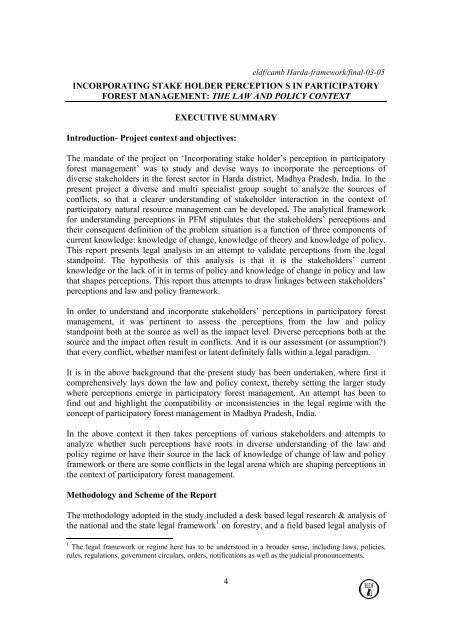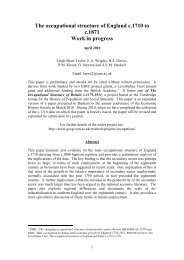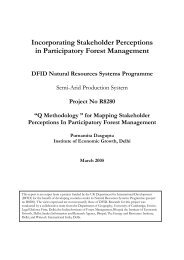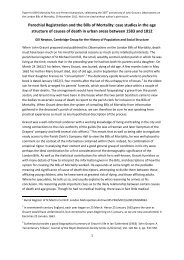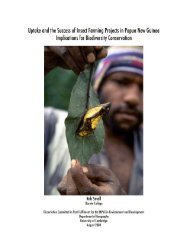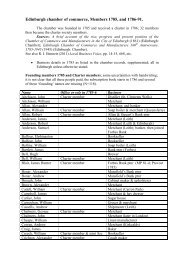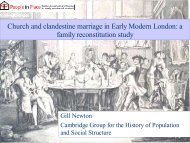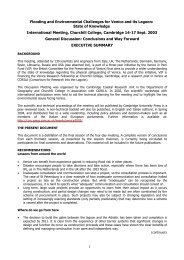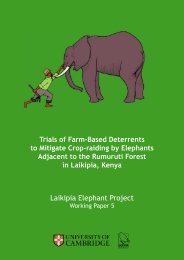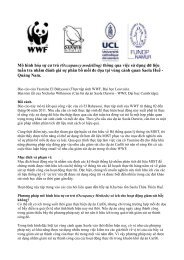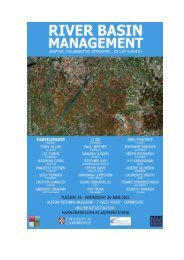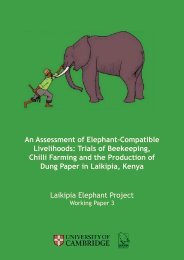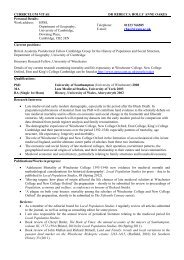Incorporating Stakeholder Perceptions in Participatory Forest
Incorporating Stakeholder Perceptions in Participatory Forest
Incorporating Stakeholder Perceptions in Participatory Forest
You also want an ePaper? Increase the reach of your titles
YUMPU automatically turns print PDFs into web optimized ePapers that Google loves.
eldf/camb Harda-framework/f<strong>in</strong>al-03-05<br />
INCORPORATING STAKE HOLDER PERCEPTION S IN PARTICIPATORY<br />
FOREST MANAGEMENT: THE LAW AND POLICY CONTEXT<br />
EXECUTIVE SUMMARY<br />
Introduction- Project context and objectives:<br />
The mandate of the project on ‘<strong>Incorporat<strong>in</strong>g</strong> stake holder’s perception <strong>in</strong> participatory<br />
forest management’ was to study and devise ways to <strong>in</strong>corporate the perceptions of<br />
diverse stakeholders <strong>in</strong> the forest sector <strong>in</strong> Harda district, Madhya Pradesh, India. In the<br />
present project a diverse and multi specialist group sought to analyze the sources of<br />
conflicts, so that a clearer understand<strong>in</strong>g of stakeholder <strong>in</strong>teraction <strong>in</strong> the context of<br />
participatory natural resource management can be developed. The analytical framework<br />
for understand<strong>in</strong>g perceptions <strong>in</strong> PFM stipulates that the stakeholders’ perceptions and<br />
their consequent def<strong>in</strong>ition of the problem situation is a function of three components of<br />
current knowledge: knowledge of change, knowledge of theory and knowledge of policy.<br />
This report presents legal analysis <strong>in</strong> an attempt to validate perceptions from the legal<br />
standpo<strong>in</strong>t. The hypothesis of this analysis is that it is the stakeholders’ current<br />
knowledge or the lack of it <strong>in</strong> terms of policy and knowledge of change <strong>in</strong> policy and law<br />
that shapes perceptions. This report thus attempts to draw l<strong>in</strong>kages between stakeholders’<br />
perceptions and law and policy framework.<br />
In order to understand and <strong>in</strong>corporate stakeholders’ perceptions <strong>in</strong> participatory forest<br />
management, it was pert<strong>in</strong>ent to assess the perceptions from the law and policy<br />
standpo<strong>in</strong>t both at the source as well as the impact level. Diverse perceptions both at the<br />
source and the impact often result <strong>in</strong> conflicts. And it is our assessment (or assumption?)<br />
that every conflict, whether manifest or latent def<strong>in</strong>itely falls with<strong>in</strong> a legal paradigm.<br />
It is <strong>in</strong> the above background that the present study has been undertaken, where first it<br />
comprehensively lays down the law and policy context, thereby sett<strong>in</strong>g the larger study<br />
where perceptions emerge <strong>in</strong> participatory forest management. An attempt has been to<br />
f<strong>in</strong>d out and highlight the compatibility or <strong>in</strong>consistencies <strong>in</strong> the legal regime with the<br />
concept of participatory forest management <strong>in</strong> Madhya Pradesh, India.<br />
In the above context it then takes perceptions of various stakeholders and attempts to<br />
analyze whether such perceptions have roots <strong>in</strong> diverse understand<strong>in</strong>g of the law and<br />
policy regime or have their source <strong>in</strong> the lack of knowledge of change of law and policy<br />
framework or there are some conflicts <strong>in</strong> the legal arena which are shap<strong>in</strong>g perceptions <strong>in</strong><br />
the context of participatory forest management.<br />
Methodology and Scheme of the Report<br />
The methodology adopted <strong>in</strong> the study <strong>in</strong>cluded a desk based legal research & analysis of<br />
the national and the state legal framework 1 on forestry, and a field based legal analysis of<br />
1 The legal framework or regime here has to be understood <strong>in</strong> a broader sense, <strong>in</strong>clud<strong>in</strong>g laws, policies,<br />
rules, regulations, government circulars, orders, notifications as well as the judicial pronouncements.<br />
4


